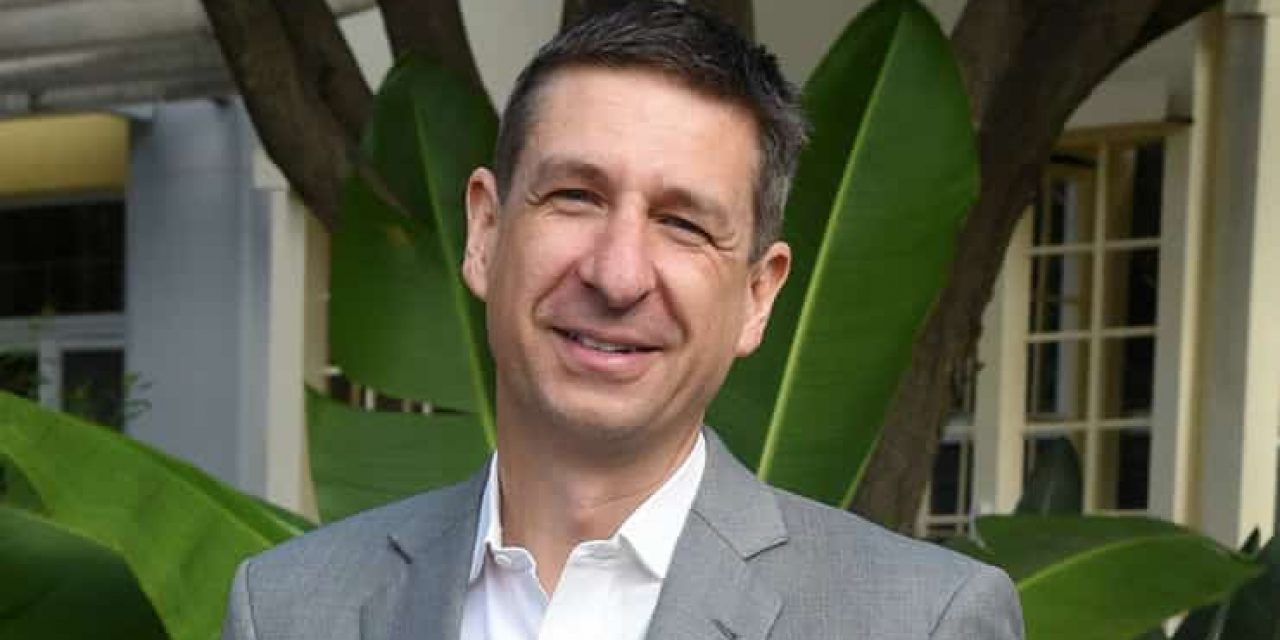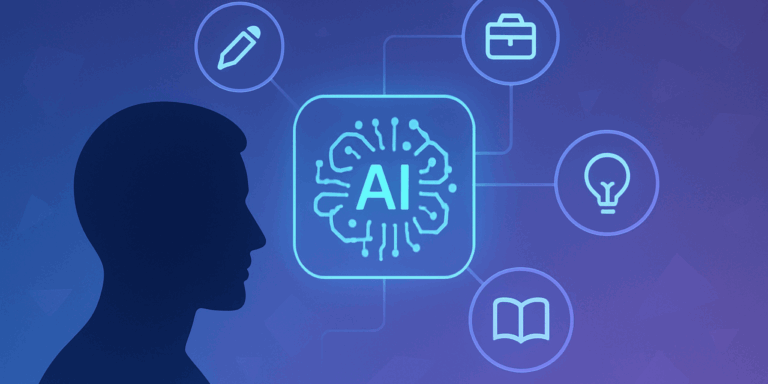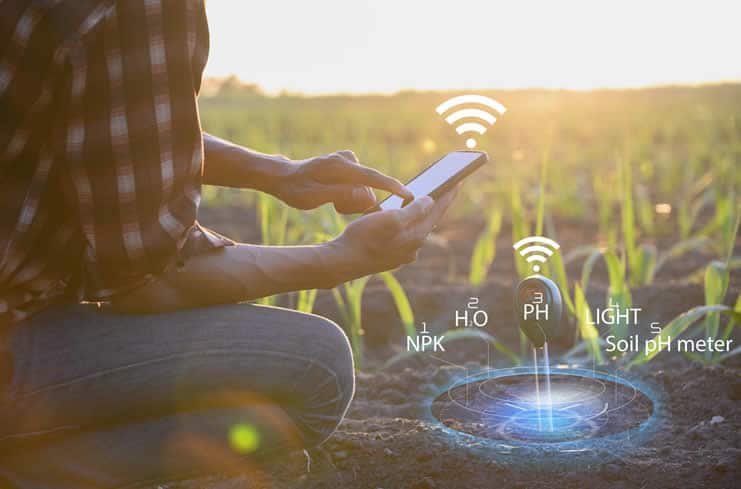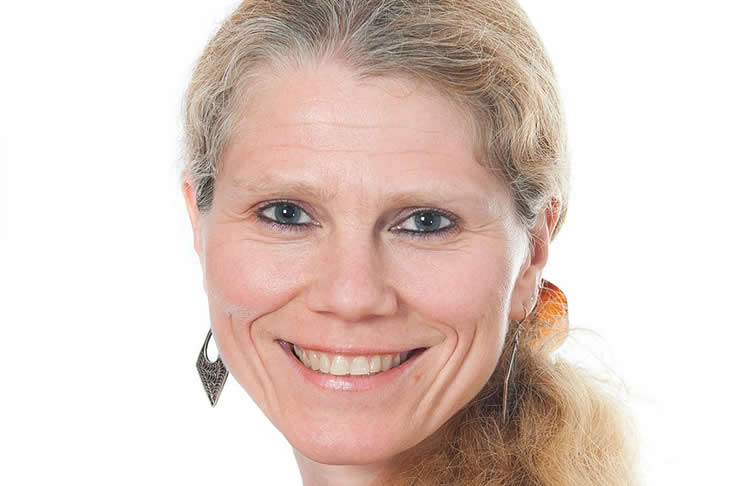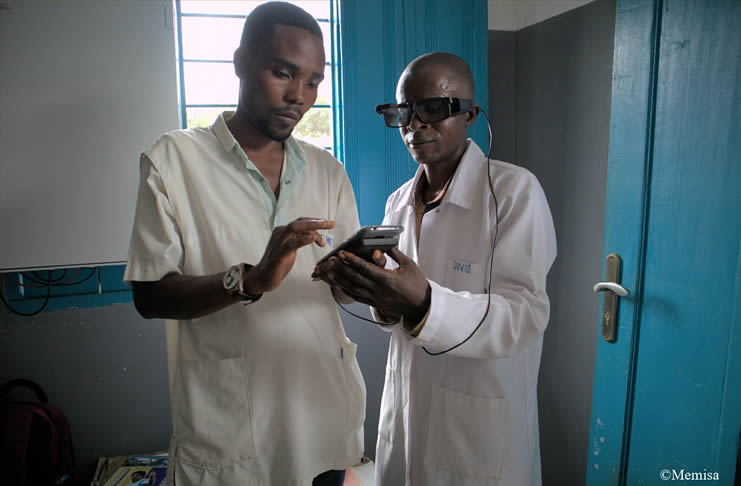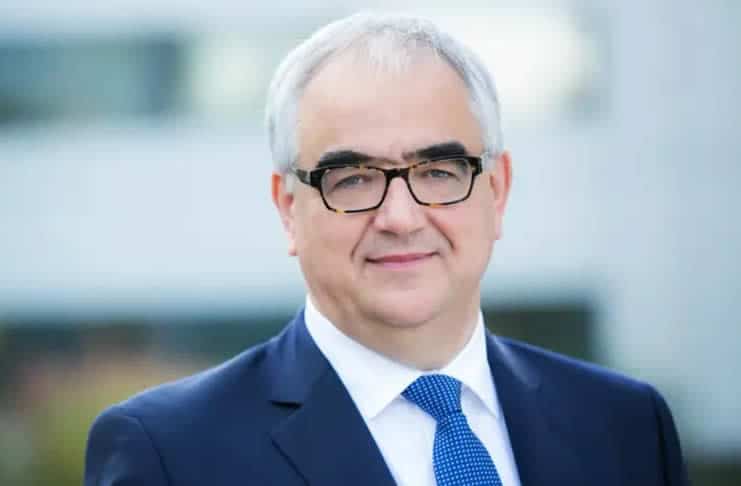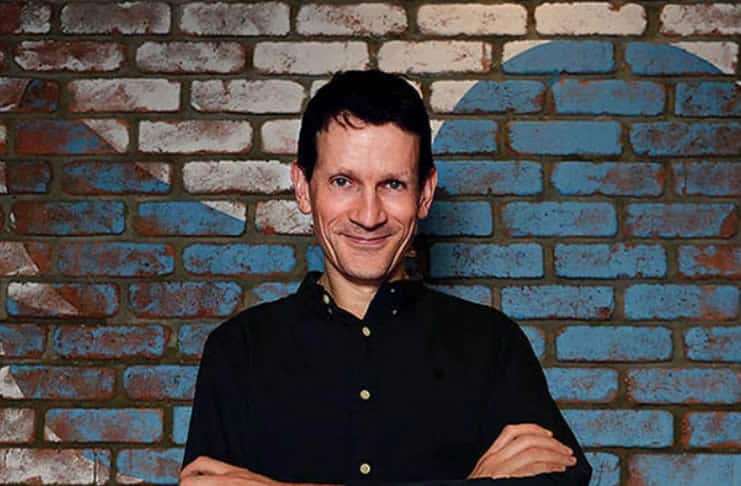In an interview with Dr. Paul Stoffels, we saw how global health challenges require worldwide collaboration that simultaneously considers local and regional differences.
This ‘glocal’ aspect is also essential for Dr. Marc-Alain Widdowson, director of the Institute of Tropical Medicine Antwerp, as you can read in this interview.
Marc-Alain, like Paul, is one of the speakers at “The 5th Table on Health Tech.” The event looks at how we can improve global health by making biomedical and digital health innovations easier, cheaper, and accessible anywhere in the world in a way that is adapted to the local situation.
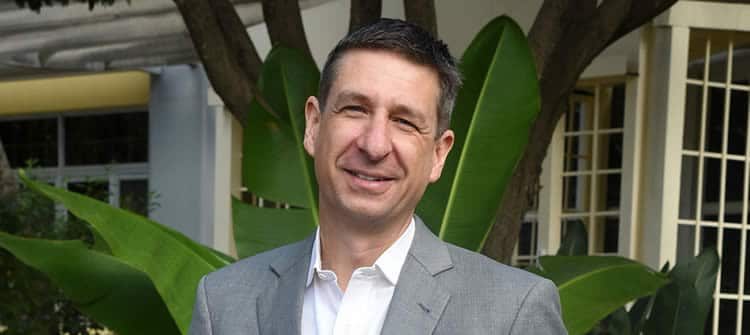
The Institute of Tropical Medicine Antwerp: global science for global health
Marc-Alain, can you tell us what precisely the Institute of Tropical Medicine Antwerp does?
Marc-Alain Widdowson: We want to impact global health by using excellent science that is particularly applicable in low- or middle-income environments.
Our motto is ‘global science for global health.’ That “global” aspect is vital because we are really looking at the global health challenges that affect us all. Some examples: the corona crisis, diabetes, and nutrition.
They affect both high-income countries and what we think of here as low- or middle-income countries. But even in those countries, there are pockets of higher income. So we have a set of very heterogeneous places with lessons to be learned everywhere.
There is a real innovation challenge to get digital and biomedical technologies into a format that allows for easy diagnostics and better treatment of patients in the world’s most impoverished areas.
And that’s precisely what we do: we see ourselves as a global institution and try to look at countries worldwide to draw lessons, compare and contrast, and solve problems globally, but especially with a focus on low and middle-income countries where the needs can be greatest.
The Institute of Tropical Medicine prides itself on having deep expertise, the aforementioned global vision, and the ability to work well with people who are equally passionate about these topics.
That capacity came to the fore in the COVID-19 pandemic, where the ITM played an essential role in Belgium. We supported clinical care in Antwerp and helped draw national treatment guidelines, conducted a range of epidemiologic and virologic studies in Flanders and Belgium aimed at informing the response, set up studies in low and middle-income countries to look at COVID-19 and its effect on healthcare provision.
We also used our vast network to bring people from all over the world together to share experiences and draw lessons from each other. Finally, we have been involved in trials of some COVID vaccines, initially the two-dose trial of Johnson & Johnson. We did that because we felt it was an excellent example of learning something about the vaccine that could be applied abroad in a lower-resource environment.
In a way, you could say that COVID was the perfect microcosm of our role since you need a global perspective to understand it fully.
What the West can learn from the handling of the COVID-19 pandemic
Surely we in the West can also learn many lessons from so-called poorer countries? For example, regarding the approach to deal with the COVID-19 pandemic or pandemic preparedness in general?
Marc-Alain Widdowson: That’s a good question. I think the handling of the COVID-19 pandemic taught us a lot, also with regards to leadership.
An article in The Independent (editor’s note: the interview was conducted on October 12) states, I quote, that the government’s initial policy was “one of the most important public health failures” ever committed in the UK.
The quote comes from an inquiry by the Science and Technology Committee and the Health and Social Care Committee, which essentially said that the UK was ill-prepared and had focused too much on flu.
It is interesting because the US and the UK have long been leaders in technology and expertise and have known how to deal with diseases and pandemics for decades. After all, they have invested a lot in technology and measures to be prepared for a pandemic.
Experts from all over the world have been going there to be trained in pandemic preparedness and similar matters. However, we have now clearly seen that leadership and communication are at least as important as plans and technological expertise.
A plan was drawn up in the UK in 2005 to combat an airborne virus arriving in Britain from China following the SARS-1 outbreak. But not much more was done with it by the government. Otherwise, it could have broadened pandemic preparedness and planning beyond the flu instead of reinventing the wheel.
I think it was a shock to many people to see that countries like the UK and the US know very well what to do but can’t really implement it in practice, both for political reasons but also that some surveillance and data systems were simply not as good as everyone thought, especially in a crisis mode. And there are undoubtedly interesting lessons about leadership to be learned by looking at countries from Asia and Oceania. Whether you then want to follow those lessons is, of course, another matter.
A second area where lessons can be learned or at least examples that can be reflected upon concerns data protection.
Some countries could control the pandemic with rigorous contact tracing and measures that people in Europe wouldn’t just accept. I think it’s also interesting to look at that aspect, both from a scientific point of view and a political leadership perspective.
If you look at the first days of the pandemic, it still amazes me how country after country, the poorest included, prioritized health over economics. That was very remarkable when you think about it. With a few exceptions, almost all countries closed the country, even low and middle-income countries.
The challenges regarding diagnostics
Speaking of technologies, do you see any specific challenges there?
Marc-Alain Widdowson: I think the simplification of diagnostics is crucial.
For any intervention related to a disease, you have to have an evidence base to argue for it. We are pretty certain that Africa has not been terribly affected by COVID, but we don’t really know how bad it has been affected. The rate of testing in Africa is still significantly lower than elsewhere.
So we need better eyes and ears for some of these countries. There is a real innovation challenge here: how do we get digital and biomedical technologies into a format that allows for easy diagnostics and better treatment of patients in these areas. Ultimately, this is where people die. I’m certainly not just talking about COVID but a lot of other diseases like diarrhea and pneumonia.
Suppose you are going to introduce a new vaccine, for example, against pneumonia. In that case, you have to have evidence that there is a problem, both for the public health community and for your internal market. You have to be able to convince people that it’s a good idea to make a specific decision.
I’ve often worked around flu and flu vaccines. Right now, most of Africa is not getting routine flu vaccines. Is that because they don’t get the flu? Or is it because, for some reason, they don’t get the flu as much, and not as many people die from it or get sick as in other countries?
Without that data, we don’t know. So it is difficult for a decision-maker to purchase such vaccines for a country and indeed for the pharmaceutical industry to invest in the development of interventions. You don’t know how many cases there are, how many will be prevented, how your vaccine will affect hospitalizations, the impact on the economy, etc. In wealthier countries, we make such calculations, but in African countries, it is more difficult without accurate data.
The same is true for COVID. We don’t really know how common the sequences are in Africa, except for some primary data. If we want to vaccinate there, we have to ask ourselves what vaccines we will use. But what strains are there? What are the risk groups? Are people with TB at greater risk of dying from COVID? What about people with sickle cell disease? Again: we just don’t know.
Most outbreaks, even in high-income countries, are not detected by systematic data collection but rather alert physicians or communities who know what number to ring to get help (Marc-Alain Widdowson)
The importance of good quality data – the innovation front ahead
You’re talking about diagnostic data. Data is also essential in global health in other areas, with the increasing possibilities offered by big data analysis and related technologies. Is the situation better there?
Marc-Alain Widdowson: Accurate vital statistics are a huge gap in many countries.
Understanding the global burden of any disease can be challenging since first, you need to know the overall number of deaths or severe illnesses. Models often take lots of data from different countries that are put into a big box, as it were, and then all kinds of intelligent and sophisticated things are done with it.
But the data they use is very patchy and again limited for some regions, giving a distorted picture. Take, for example, mortality which is rarely collected reliably nationally in low and middle-income countries. Often the data are biased and too small with no longitudinal trends making it very difficult to estimate excess mortality, for instance, due to COVID-19 or influenza.
I think this is a crucial innovation front where we can still change a lot. We have the technologies, cell phones, the Internet, and often wide networks of community health workers.
I don’t want to make it sound too easy because though relatively simple conceptually, it is not easy to ensure good quality data. But through a reporting system at the level of villages, local communities, and hospitals, one should at least be able to chart the number of deaths provided somewhat systematic and verified reporting.
Data, by the way, is not the only thing that matters. Detecting outbreaks, for example, is partly a matter of digital systematic data collection, but it is certainly equally important to have community networks. In fact, most outbreaks, even in high-income countries, are not detected by systematic data collection but rather alert physicians or communities who know what number to ring to get help.
For example, a new strain of bird flu was initially detected by a Shanghai doctor. A patient of his, who was in his nineties, died of pneumonia. The day after, that man’s son came in, someone in his sixties. He also had pneumonia and died as well. And then the latter’s brother got it too. He didn’t die but was hospitalized with pneumonia. The doctor realized something was wrong: three people from the same household, you would never pick that up with algorithms or by systematic data. It takes smart, connected clinicians.
We must continue to think about how we can make the world more democratic in terms of health care interventions and improving health care. It is particularly depressing to see how poor health care still is today in many of the world’s most impoverished areas (Marc-Alain Widdowson)
What significant health challenges do you see globally in terms of health itself?
Marc-Alain Widdowson: Obesity is one. Mental health. Cancers. There’s so much work on that front in terms of access to care and treatments.
In Africa, we had friends with cancer who had nowhere to go, which is terrible. The treatments are expensive, and some of these inequalities in terms of treatment have yet to be addressed.
When I was in my early twenties, I got a form of cancer myself, Hodgkin’s disease. That, fortunately, is a lymphoma, which is treatable with chemotherapy, so I got treated.
But if I had been born anywhere in Africa, that would have been it. We must continue to think about how we can make the world more democratic in terms of health care interventions and improving health care. It is particularly depressing to see how poor health care still is today in many of the world’s most impoverished areas.
But at the same time, there is also much good. The drop in infant mortality is remarkable, and global health is improving with increasing vaccination, the success of treatment against HIV, and fewer people living in extreme poverty.
One of the challenges is to get routine treatments into areas that we no longer have to think of as some kind of luxury areas. We need to make sure that the populations of poorer countries have access to antibiotics and essential routine vaccines, which has worked through organizations like Gavi.
How can we further reduce the time between development and introduction of an intervention in higher-income countries and the same intervention in poorer countries where often the impact would be greater?
But we need to think about getting the best diabetes drugs, hypertension drugs, and cancer drugs and think about infectious diseases and these non-communicable diseases. How can we effectively treat them? And the same goes for mental health, where we also need to democratize the interventions better.
Disrupting the natural course of events affects us sooner or later in terms of health in ways we never expected (Marc-Alain Widdowson)
One health: a holistic view of global health challenges
You advocate a holistic view of global health or ‘One Health’: human, animal, and environment. Or in other words, how our health is related to other domains such as biodiversity and the environment. Can you give some examples of this?
Marc-Alain Widdowson: I think that there is a danger of losing the argument a little if the links are made too broad. This has been a bit of a problem with “One Health,” which has been a little tough to pin down in the past.
The links with animals have always been there in terms of zoonotic disease and some farming practices. But now, as we focus increasingly on wide disruptions to the environment, such as climate change, loss of biodiversity, deforestation, wildlife trade, we see increasing areas of concern.
For example, you might wonder if the wildlife trade nowadays affects health more than before since humans have always hunted wildlife, but the global scale is now different. Some studies show that if you put animals together and ship them in adjacent crates, eventually mixing them in large markets, these different animals, often a mixture of domestic and wild or exotic animals who normally would not meet, exchange many pathogens between each other.
In practice, you are then bringing together viruses that, in normal circumstances, should not be together. They can then mutate and switch genes. The flu virus is excellent at this because it has a segmented genome and can therefore swap bits of genes. Influenza viruses are naturally found in wild birds, so the more you mix domestic chicken adapted viruses with wild viruses, the more likely it is that something unusual will happen and a new virus will emerge. That’s simply an incontrovertible fact.
Another example involves the environment and the spread of vectors. It is evident that as temperatures warm, mosquitoes will spread and bring these diseases with them. Other animals, such as ticks, will also emerge and thrive more. This is not just insects, but also rodent and bat distribution is affected by ecologic disruption where some rodents such as the Mastomys in West Africa that carry Lassa virus may seek human habitation for shelter and food when nearby forest is destroyed.
In short, if biodiversity is disturbed by all these significant changes, it has all kinds of effects that also affect public health. But it is challenging to predict exactly how that will be.
There are plenty of concrete examples that these changes will lead to health challenges, just that they are not always easy to prove.
Another example is antimicrobial resistance. The use of growth promoters containing antibiotics for food and farms is linked to increasing antibiotic resistance.
When we talk about pandemic or emerging diseases, we often think of them as having some kind of tropical dimension. But as the mad cow disease showed, that is not the case, and that was a great example of how disrupting the natural course of events (in effect feeding cows other cows) affects us sooner or later in terms of health in ways we never expected. The last flu pandemic was in 2009 and began in Mexico and not from Asia that we had all been terrified of.
So, there are many complex challenges ahead in which it is essential to learn from other countries, work holistically, and look at the local level. This is discussed in a subsequent interview with Dr. Elies Van Belle. She also talks about some initiatives that she was able to realize as director-general of a medical NGO in Africa with the cooperation of the Institute of Tropical Medicine Antwerp. Thanks for your time and insights, Marc-Alain.
Top picture: source and courtesy Institute of Tropical Medicine Antwerp.
Interviews conducted at the occasion of previous 5Th Conference events on healthcare:
- Wouter De Ploey (CEO of hospital network ZNA): transformation in the hospital sector
- Frank Dendas (Philips): new healthcare models have become a necessity
- Valerie Storms: mHealth – from research to real-life applications
- Telemedicine expert Leonard Witkamp on truly transforming the health system
- Smart health investment: health economics and policy with Prof. dr. Dominique Vandijck
